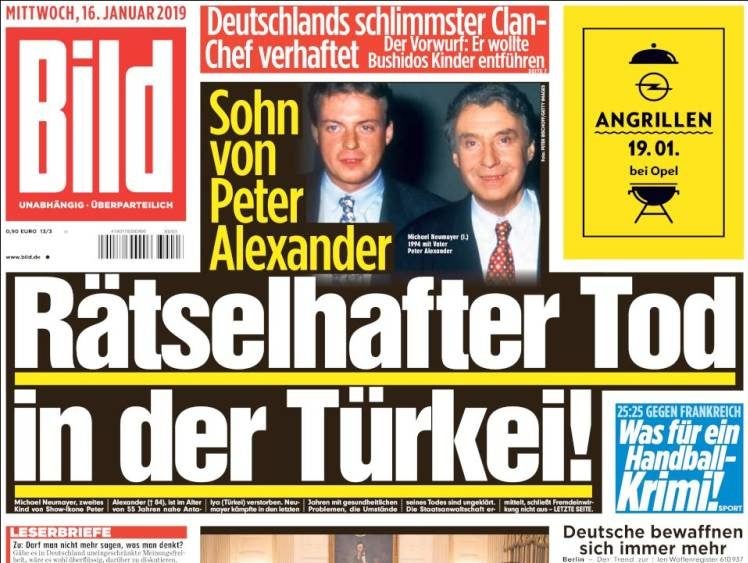
A bid by German national newspaper Bild to overturn an order banning re-publication of a picture of a well-known Swiss journalist sitting shirtless in a prison yard while being held on suspicion of rape and assault has been rejected by the European Court of Human Rights.
A committee of three judges held that the case, taken to Strasbourg by Axel Springer AG, which publishes the daily newspaper, and Bild GmbH and Co KG, which manages its website, was inadmissible because German courts had balanced the competing privacy and freedom of expression rights.
The case started in March 2010, when the weather presenter was arrested and remanded in custody on suspicion of the aggravated rape and assault of his former girlfriend.
In July that year Bild published, in print and online, an article accompanied by two photographs, one of which showed the journalist sitting bare-chested and surrounded by other prisoners in a jail yard.
The journalist was later released and acquitted of all charges in criminal proceedings that attracted considerable media coverage.
In December 2010 the journalist applied to Cologne Regional Court for a ban on any further publication of the photograph as well as reimbursement of his lawyer’s fees.
In June 2011 the court banned Bild and Axel Springer AG from publishing or distributing the photograph without the journalist’s consent and ordered them to reimburse some of the lawyer’s fees.
In February 2012 the Cologne Court of Appeal dismissed the companies’ appeals, but reduced the amount of lawyer’s fees they were to reimburse.
The Court of Appeal held that publication and distribution of the photograph was unlawful because the companies had failed to obtain the journalist’s consent and there was no link between the photograph and any current event.
The photograph had had no information value, it said, adding that even if it had had any such value, regard should be had to the fact that at the time the photograph was taken the journalist was in a place of confinement inaccessible to the public and had thus had no reason to expect to be photographed.
The fact that the journalist had long been the subject of media reports did not deprive him of protection for his privacy when in places of confinement, the court said.
The Federal Constitutional Court subsequently declared the companies’ appeals inadmissible.
Email pged@pressgazette.co.uk to point out mistakes, provide story tips or send in a letter for publication on our "Letters Page" blog
